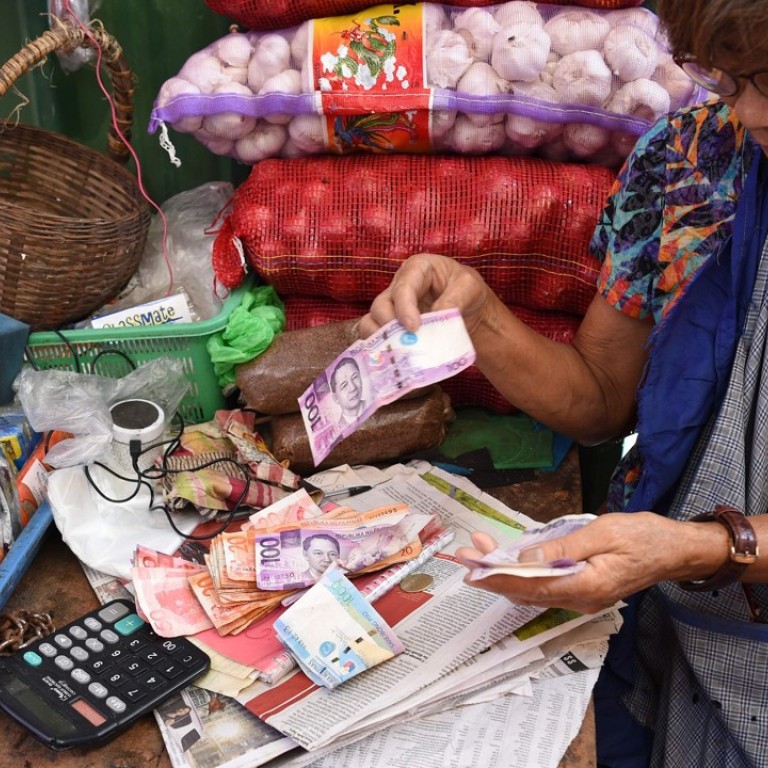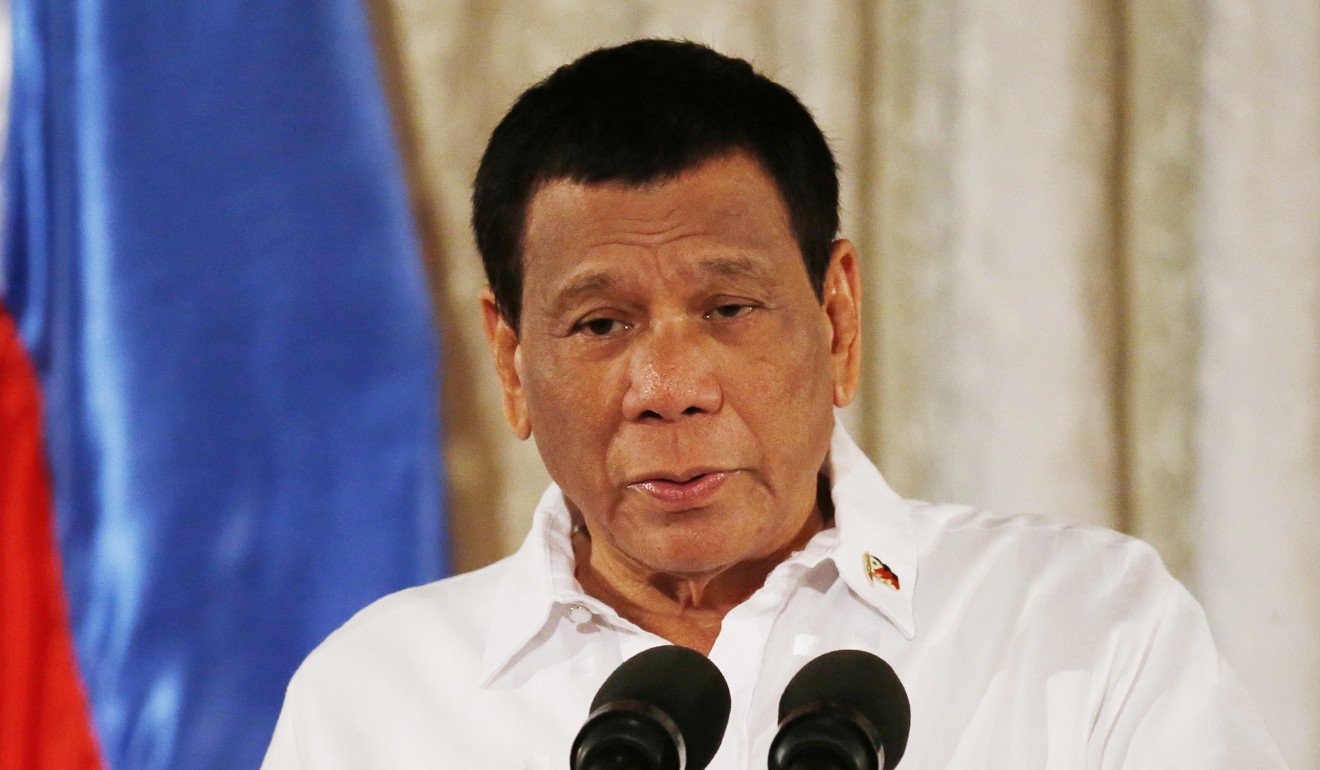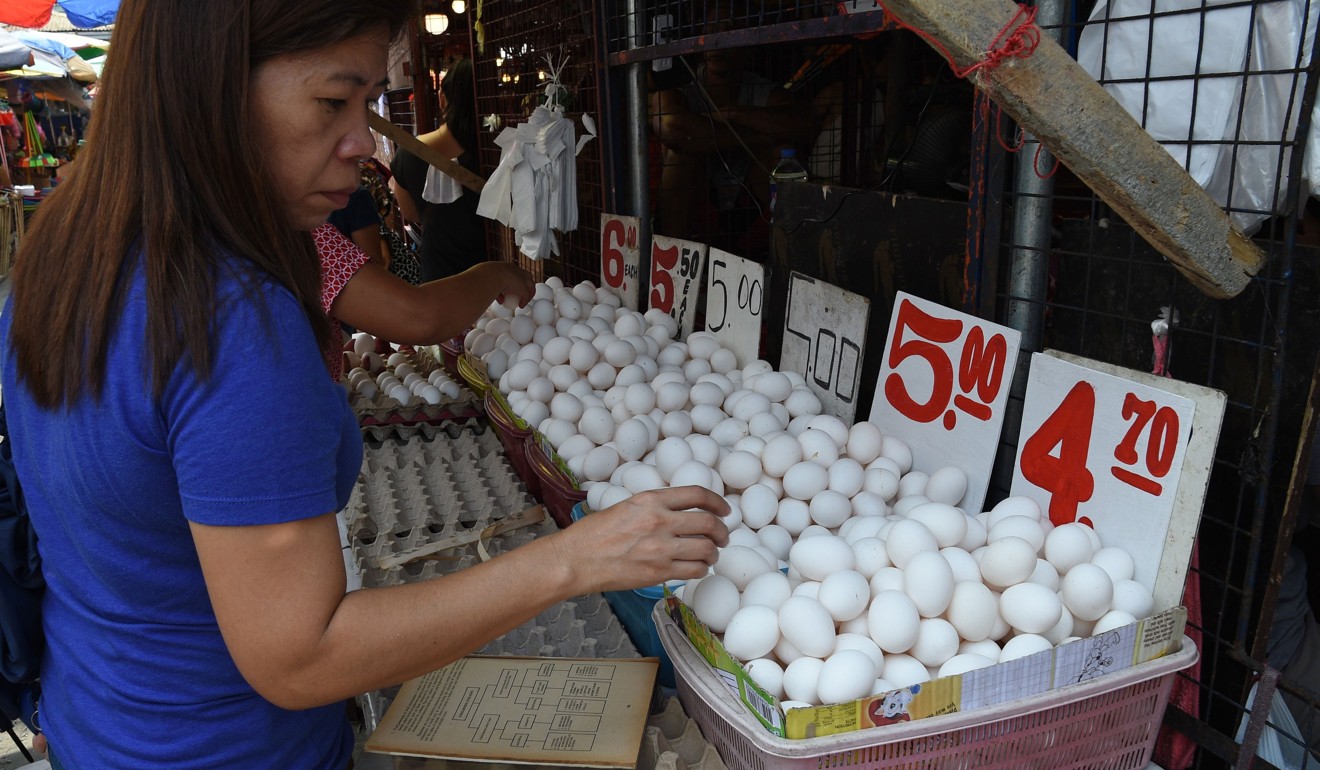
Philippines’ economic woes could hurt President Rodrigo Duterte’s popularity but his government remains upbeat
Philippine inflation rose for a ninth straight month in September, to a near-10-year high, creating a potential stumbling block for the president as voters look to May’s midterm elections
An inflation crisis and slumping currency should be enough to focus Philippine President Rodrigo Duterte’s attention on his nation’s economic woes. However, the government remains optimistic, with Socioeconomic Planning Secretary Ernesto Pernia predicting inflation will fall back in line with the government’s 2-4 per cent target range “early next year”.
Philippine inflation rose for a ninth straight month in September but has likely peaked at 6.7 per cent, a nine-year high, and will begin decelerating rapidly starting in October, Pernia told the South China Morning Post on the sidelines of the IMF and World Bank summit in Bali.
A decline in inflation in October would likely keep the Philippine central bank, the Bangko Sentral ng Philipinas (BSP), from raising interest rates at its next meeting in November, he predicted. The BSP has raised rates at each of its last four meetings by a total of 1.5 per cent.

Pernia blamed the sharp acceleration in inflation this year on food prices, particularly prices of staples such as rice, chicken, fish and vegetables. The government had already taken action to address the problem by opening up imports, he said.
“Now anyone can import [food], no need for a licence,” he said, predicting imports would “flood” the market and bring down inflation.
Calls to boost rice imports started as early as the first quarter of 2017 when supply began to dwindle. Duterte responded in April last year by firing a cabinet undersecretary who had pushed for more rice purchases. As supply of the staple grain ran out, prices climbed to a record this year, prompting Duterte to finally approve more imports.
Reversing the perception that the government has done badly in managing inflation will take some time
“We are aware of how much our fellow Filipinos are feeling the impact of rising prices of goods, that is why the government has already taken steps to address this,” the president’s spokesman Harry Roque said over the weekend, citing a number of additional measures Duterte had signed in the last few weeks. “We hope that these measures will help in lowering the prices of goods in local markets.”
A Social Weather Stations poll released on Wednesday showed 52 per cent of Filipino families now consider themselves poor, 10 points higher than in March, and the highest since December 2014.
That could hurt President Duterte as Philippine voters look to the May midterm elections, when half the Senate and all seats in the 297-member House of Representatives will be up for re-election, disrupting his legislative agenda for remainder of his six-year term.
“The inflation issue has really taken hold here,” Bob Herrera-Lim, managing director for Teneo Strategy in Manila, wrote in an email. “Reversing the perception that the government has done badly in managing inflation will take some time, and he hasn’t done enough.”
However, Pernia’s explanation for the cause of inflation was at odds with the BSP’s.
The BSP said the government’s controversial Tax Reform for Acceleration and Inclusion law (TRAIN) that went into effect on January 1 was also to blame for higher prices. That law cut personal tax rates – and a reduction in corporate tax rates will follow if the government can pass further legislation by the end of the year. But TRAIN also raised taxes on commodities such as oil, as well as a range of consumer products, including tobacco, alcohol and sugary drinks. The government has come under pressure from its political allies and big business to suspend excise taxes but has so far resisted.
Philippines’ inflation crisis: will Duterte feel the pinch?
Secretary Pernia also objected to claims the weakness in the peso exchange rate was due to weakness in the economy.
“This is completely erroneous,” he said, arguing the weakness of the peso was due to the strength of the US dollar, due in large part to Federal Reserve rate hikes.
Pernia also denied the TRAIN tax bill had contributed to the peso’s decline. TRAIN, he argued, had given the government leeway to pursue the Build, Build, Build programme that would benefit the country in the longer term.

The minister sidestepped questions about how the peso would perform if the Fed, as expected, continues to raise interest rates this year and next. He suggested the BSP would consider adjusting its policy, if necessary, but stressed the central bank was independent and would make its own judgment on any appropriate action.
According to Jayeel Cornelio, director of the development studies programme at Ateneo de Manila University, economic woes could be particularly harmful to the president’s political fortunes.
“Given that there are many people who fall below the poverty threshold in the Philippines, a spike in inflation has huge consequences for the popularity of the man who came to power for promising to be on the side of the weak and vulnerable,” Cornelio said.
Additional reporting by Bloomberg

